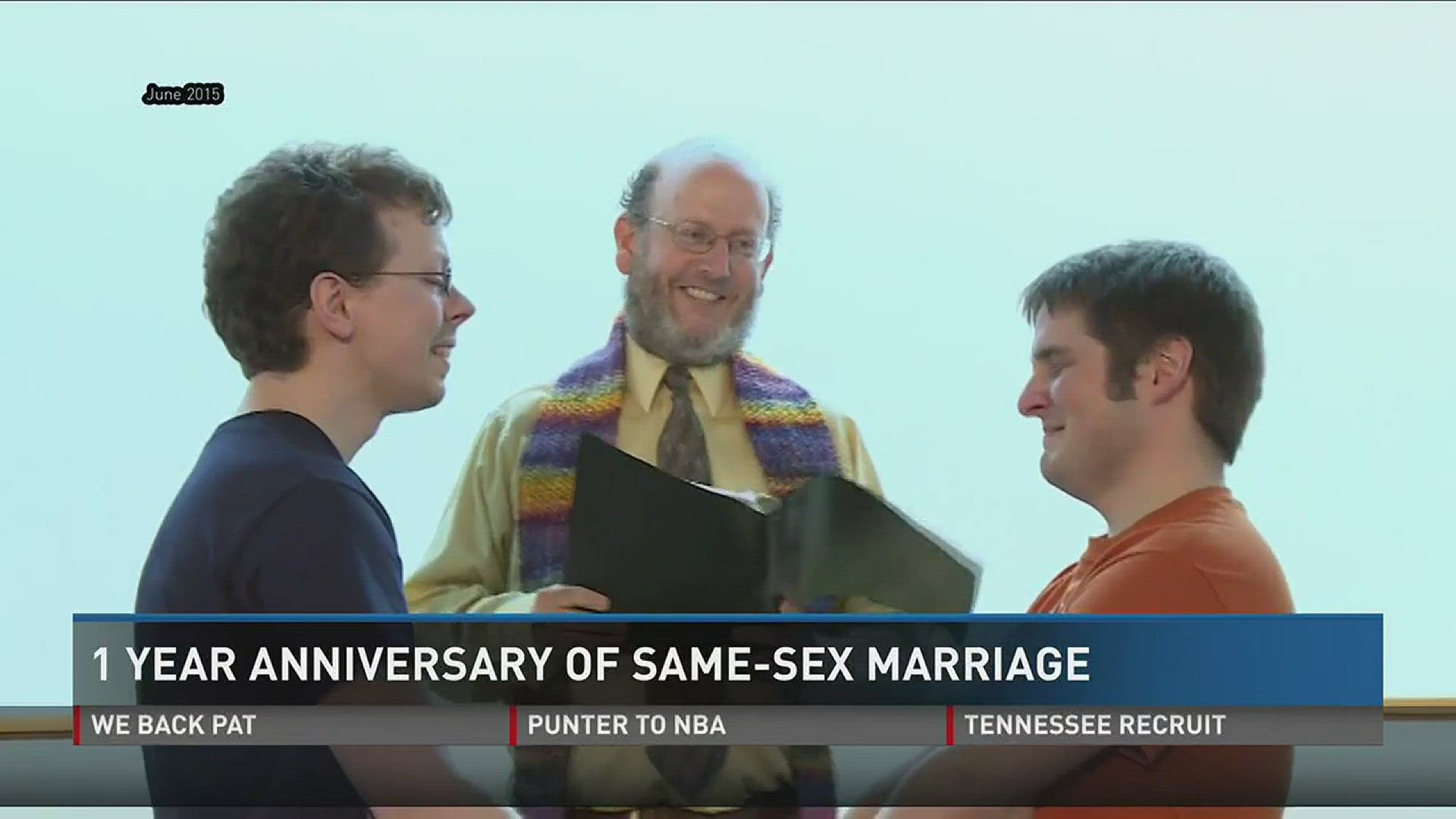Nearly four years after the Supreme Court made same-sex marriage legal throughout the U.S., Republican lawmakers in Tennessee are attempting to turn back the clock with a bill aimed at banning gay marriage in the state.
The “Tennessee Natural Marriage Defense Act,” which was first proposed in 2016, seeks to “defend natural marriage between one man and one woman regardless of any court decision to the contrary.” The bill, which was reintroduced on Friday, would deem the Supreme Court’s decision in Obergefell v. Hodges “unauthoritative, void, and of no effect.”
Introduced by Sen. Mark Pody and Rep. Jerry Sexton, both Republicans, the bill also prohibits government officials from facilitating same-sex marriages, and states that these officials cannot be arrested for disavowing court orders that recognize such unions.
Pody told NBC News that the Supreme Court “overstepped its authority” with the Obergefell decision. He claimed marriage is “a state issue, not a federal issue,” and therefore, he added, the 2015 ruling is “unconstitutional” and should be rectified.”
But while Pody said he strongly believes “marriage should be between a man and a woman,” others find the reintroduction of the bill to be a major step backward for Tennessee.
"As a native Tennessean, it's disappointing to see lawmakers pushing more mean, pointless legislation that would do nothing except single out LGBTQ people in an effort to make us feel less than equal,” said Nick Morrow, press secretary for the Human Rights Campaign, a national LGBTQ advocacy group. “Marriage equality is settled law, and if Tennessee wants to continue to be a welcoming destination for businesses, tourists and transplants alike, our representatives need to join us in the year 2019."
The proposed legislation failed in the state’s House of Representatives last session, but Chris Sanders, executive director of the Tennessee Equality Project, which lobbies state legislatures on LGBTQ issues, said it’s not clear at this point how it will fare this time around.
“We’ll have a better understanding of the likelihood of the bill passing after the first committee hearing, so that’ll be key,” Sanders told NBC News.
Sanders noted that there’s “still some resistance and prejudice” in the state when it comes to LGBTQ people, which is “why this bill keeps coming up.” He noted that Tennessee is one of four states where the population is over 50 percent evangelical Christian. This religious group is among the least likely to support the rights of lesbian, gay, bisexual, transgender and queer people.
One barrier that could prevent the bill’s passage, however, is its projected cost. In 2017, the General Assembly estimated that the Natural Marriage Defense Act could cause approximately $9 billion in federal funding to be withheld from the state.
Another obstacle is the state’s LGBTQ community and its allies, who banded together once before to prevent the bill’s passage, and plan to do so again.
“Tennesseans who are in committed same-sex relationships simply want to be treated with the same dignity and respect as everyone else,” Hedy Weinberg, executive director of the ACLU in Tennessee, said. “A handful of state legislators cannot nullify the law of the land and drive our state backward simply because they wish to discriminate. The ACLU of Tennessee, along with many partners, will be working hard to defeat this narrow-minded, blatantly unconstitutional legislation.”
Sanders said there are at least five other bills in the state legislature that may threaten the rights of LGBTQ people in Tennessee. One of them, introduced in the state House and Senate (Pody is the sponsor of the Senate bill), seeks to allow private adoption agencies to decline to participate in any child placement services that would “violate the agency’s written religious or moral convictions.” This type of legislation, which can already be found in 10 states, creates barriers for LGBTQ individuals and same-sex couples looking to adopt or foster children.

